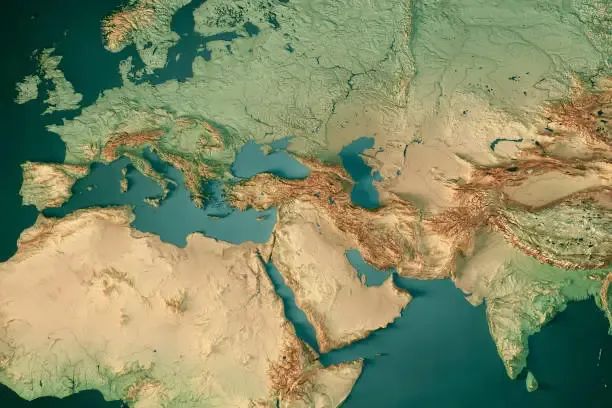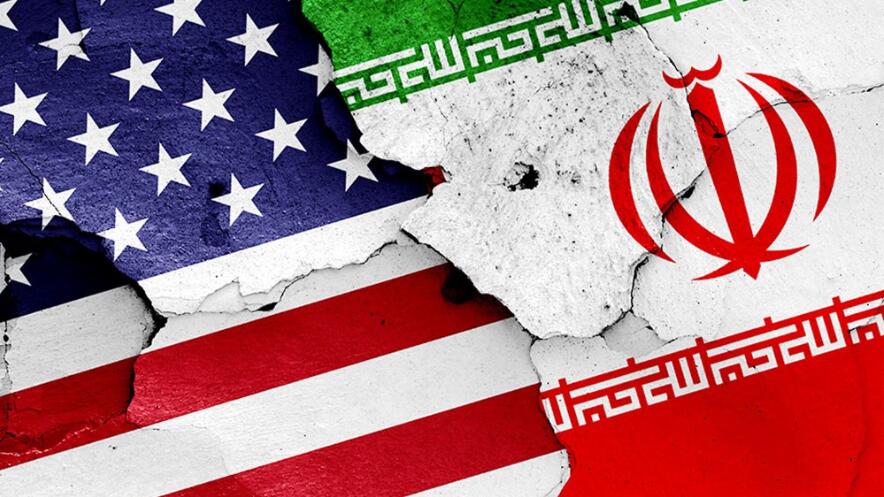
Israel's continued brutal assault on the Gaza Strip, and the spillover of the conflict in the region have raised the alarm across the world. After Iran launched major missile attacks on Israel on Oct 1 in response to the killings of Hamas political leader Ismail Haniyeh and Hezbollah chief Hassan Nasrallah by Israeli missiles, observers feared that Israel's possible retaliatory attacks on Iran's energy facilities would send the global oil market in a tizzy and impact the global economy.
On the first anniversary of the Gaza crisis, Iran canceled all flights from 9 pm on Oct 6 to 6 am on Oct 7, which was interpreted by the international community as a precautionary measure against possible retaliatory Israeli airstrikes. Although Israel didn't launch any airstrikes, the fear of a full-scale war in the Middle East has not dissipated.
Israel is the representative of US power in the Middle East. Due to the military, political and economic support provided by the United States, Israel has for long regarded Iran and the Iran-supported Axis of Resistance as its enemies. No wonder one of the key strategies of the US and Israel is to attack Hezbollah in Lebanon with the aim of weakening Iran.
Since the Arab-Israeli War of 1948, the Middle East has been embroiled in recurring cycles of confrontation and conflict. While Palestinians condemn Israel's military actions as invasion, occupation and genocide, Israel has labeled the leadership and polity of Palestine as evil, and their actions as terrorism, rather than acts of self-defense. In particular, Israel has been destroying the Palestinian defense forces' operational capability and cutting off their supply lines.
Since the outbreak of the Israel-Palestine conflict in October 2023, Israeli missiles have killed Ismail Haniyeh, Hassan Nasrallah and Hezbollah brigadier general Abbas Nilforoushan, forcing Iran to retaliate, lest it be seen as a weak player in the region.
Unfortunately, the conflict is dragging on — in fact, it seems to be intensifying — because powerful external forces have been pulling the strings of the conflicting parties instead of trying to persuade the conflicting sides to agree to a cease-fire. Over the past year, the US has consistently reaffirmed its commitment to support Israel's right to self-defense, regardless of how the conflict evolves. US politicians have called for a cease-fire and warned of the dangers of the Middle East sliding into a wider regional conflict but have simultaneously backed Israel's right to self-defense, with Washington providing Tel Aviv with material and political support.
It is always the ordinary people who bear the brunt of war. War breeds more hatred, planting the seeds of another war, with the vicious circle becoming a perpetual reality to the despair of all.
Israeli Prime Minister Benjamin Netanyahu has been trying to involve the US in the conflict by targeting Iranian assets and Iran-backed forces in the region in a way that instigates Teheran to retaliate, so it can use it to not only justify its actions in Gaza and Lebanon but also to show the US that it's under attack from evil forces.
US President Joe Biden's criticism of Netanyahu for not signing a peace deal may stem from the latter's hope that the conflict would influence the US presidential election on Nov 5. Netanyahu and his far-right coalition are not willing to stop the assault on Gaza or the attacks on Hezbollah in Lebanon. Without the enormous pressure of war on Israel, Netanyahu's legal problems at home could soon impact his political life. Netanyahu is prolonging the crisis in Gaza by trying to draw Iran into a larger conflict in order to get Iranophobic countries to support Israel.
Compared with the Biden administration, which disapproves of Israel striking Iran's nuclear facilities, Republican presidential candidate Donald Trump recklessly declared that Israel should do that. This means peace in the region could become more elusive if Trump wins the presidential election.
To promote peace in the Middle East and end the Israeli atrocities in Gaza, major powers need to act responsibly. They should learn from China's successful efforts to mediate a rapprochement between Iran and Saudi Arabia in March 2023 in order to broker peace between the Israelis and Palestinians. China has consistently advocated for peace by urging all sides to return to the negotiation table.
The policies of the major powers to restore peace in the region should be consistent and transcend ideologies and prejudice. Irrespective of whether US Vice-President Kamala Harris or former president Trump wins the election, the US should stop fueling the conflict in the Middle East and respect the United Nations resolutions.
The root cause of the Israel-Palestine conflict is the failure of the international community to guarantee the Palestinian people the right to establish an independent Palestinian state. And the implementation of the two-state solution is the only viable way to resolve all the Middle East issues.
The governments of Middle East countries need lasting peace, but the people in the region need it even more. Only lasting peace can enable the people in the Middle East to pursue economic development and improve their lives.











